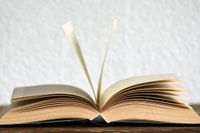Magus by Anthony Grafton: Review of a Serious and Accessible History of Learned Magic
A review of Magus by Anthony Grafton, a book that explores the history of learned magic from Ficino to Faustus.

The MA in Magic and Occult Science at the University of Exeter
Last October, the announcement of a new master’s programme at the University of Exeter sparked a brief culture war. The MA in magic and occult science received criticism from those opposed to such studies, claiming it to be 'lunacy'. In defense, programme director Emily Selove argued that magical rituals and superstitions are part of everyday life and have been 'systematically neglected by scholarship'.
To address this neglect, Anthony Grafton’s book, Magus, provides a serious yet accessible history of learned magic and occult subjects. It establishes that the difficulty in broaching the subject dates back over half a millennium.
The Emergence of Scholarly Magic
In the late middle ages, the distinction between low superstition and learned magic was significant. Learned magic was associated with the magus, a figure who represented the intersection of magic and technology. These magi were collectors of rare books in obscure languages, such as the Picatrix and the works of Zoroaster and Hermes Trismegistus.
Grafton illustrates the shift from military-focused charmed objects to astrological self-help in the 15th century. These practices aimed to improve the health and well-being of aspiring scholars. The balance between licit and illicit magic was constantly changing, with magi carefully drawing lines between acceptable and unacceptable arts.
The Convergence of Scholarly Magic and Mathematical Arts
During the 16th century, the work of the magus started aligning with other magical forms, such as mathematics, engineering, and perspective. These disciplines could create spectacles and amaze audiences. John Dee, a prominent figure in magic and mathematics, confounded onlookers with his special effects, such as a scarab beetle appearing to ascend to the heavens.
Despite these accomplishments, magi like Dee faced reputations tainted by accusations of being necromancers and conjurors of wicked spirits. However, they recognized that the marvels they witnessed were often achieved through mathematical arts.


